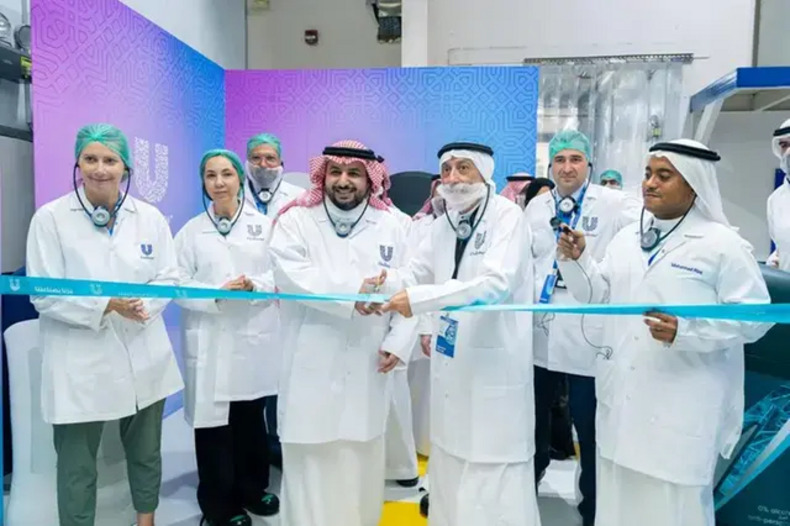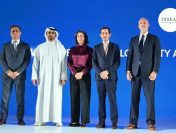
Unilever today inaugurated its new deodorant production lines at its Binzagr Unilever Limited (BUL) factory in Jeddah. The inauguration was attended by H.E. Eng. Abdulaziz bin Majed Al-Ahmadi, Deputy Minister for Industrial Development at the Ministry of Industry and Mineral Resources, and several representatives from government and industry, including the Saudi Authority for Industrial Cities and Technology Zones (MODON), the Local Content and Government Procurement Authority, and the Saudi Exports Development Authority. This reflects the strategic importance of the project in supporting economic diversification and enhancing national industrial capabilities.
The ceremony featured an opening address by H.E. Eng. Abdulaziz bin Majed Al-Ahmadi, Deputy Minister for Industrial Development at the Ministry of Industry and Mineral Resources, who highlighted that the project reflects the private sector’s commitment to advancing localisation and strengthening national supply chains by sourcing raw materials and packaging locally. He noted that this will foster the growth of local industries, reduce reliance on imports, and support the goals of the National Industrial Strategy.
The Jeddah factory, a joint venture between Unilever and the Binzagr Group established in 1978, today supplies 26 countries across five continents. With the addition of the deodorant stick lines, it becomes one of only four Unilever deodorant stick factories globally, producing male and female formats under the Dove and Rexona brands.
Equipped with fully automated, high-speed systems for mixing, cooling, filling and packing, the new lines deliver efficiency and quality at scale. With an annual capacity of 30 million units, the facility will serve the Saudi market while exporting the majority to global markets. The investment reinforces national supply chains by localising key inputs such as petroleum-based materials and packaging, while contributing to Saudi Arabia’s non-oil export growth and creating skilled job opportunities for Saudi citizens in line with national workforce development goals.
“This launch is a statement of confidence in Saudi Arabia’s industrial future and a proud milestone in our decades-long partnership with the Kingdom,” said Shazia Syed, General Manager of the Personal Care Business Group, Unilever Arabia (GCC), Turkey, Pakistan and Bangladesh, and Head of Unilever Arabia. “By placing the ‘Made in Saudi’ seal on Dove and Rexona, brands trusted by millions across the region, we are strengthening our local supply chains while building on a legacy that began nearly a century ago. This investment reflects our enduring ambition towards the future of sustainable personal care manufacturing from right here in Jeddah.”
Unilever leads the global deodorants category with over 40% market share, anchored by Dove, the world’s number one female deodorant brand, and Rexona, the leader in the male segment. The category is projected to grow from USD 27 billion in 2024 to USD 42 billion by 2032. In Saudi Arabia, Unilever holds a 27% share* of this growing category, with plans for one-third of this share to be locally produced through this strategic expansion project, reinforcing its commitment to local manufacturing and long-term growth in the region.
Unilever’s commitment to social impact in the Kingdom extends beyond manufacturing. Last year, Rexona has signed a historic three-year partnership as the first official sponsor of the Saudi Women’s National Football Team, promoting female participation and inclusivity in sport. At the same time, Dove has localised its global Self-Esteem Project through Mabrook Keberti (مبروك كبرت), reaching more than 30,000 students in Saudi schools over the past two years. Together, these initiatives reflect Unilever’s broader mission to foster confidence, resilience and opportunities for the next generation.
The expansion further supports Unilever’s wider sustainability commitments, including achieving zero emissions across its operations by 2030 and net zero across its entire value chain by 2039, reinforcing the company’s long-term commitment to advancing Saudi Arabia’s industrial growth through continued local investment.




